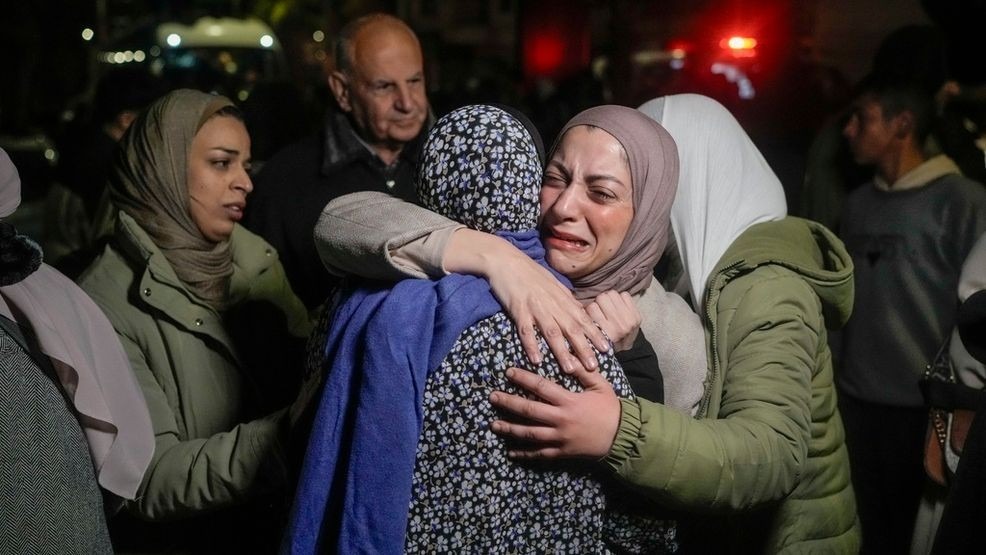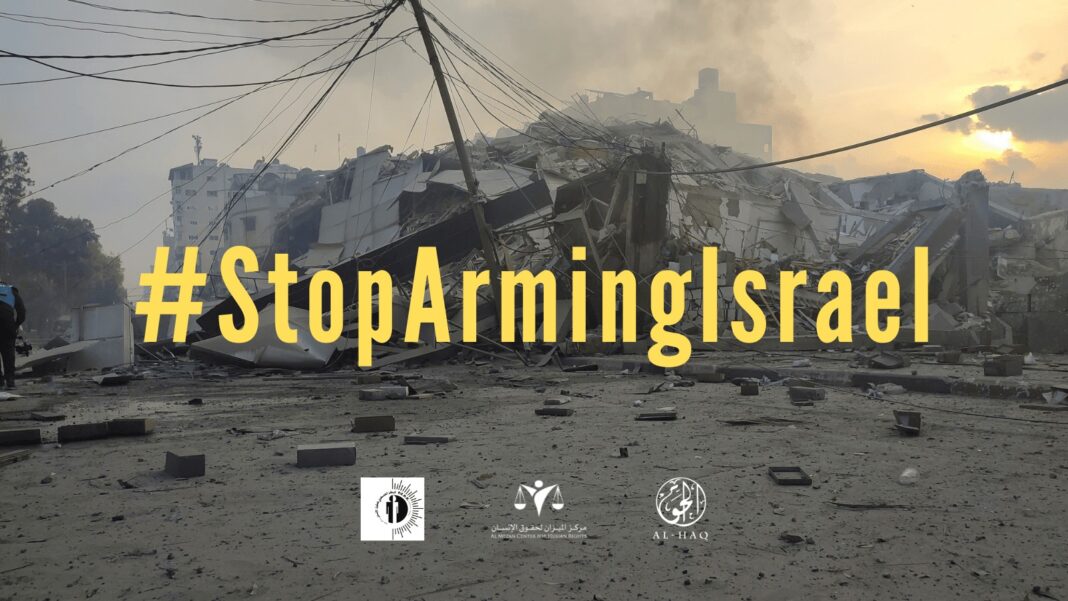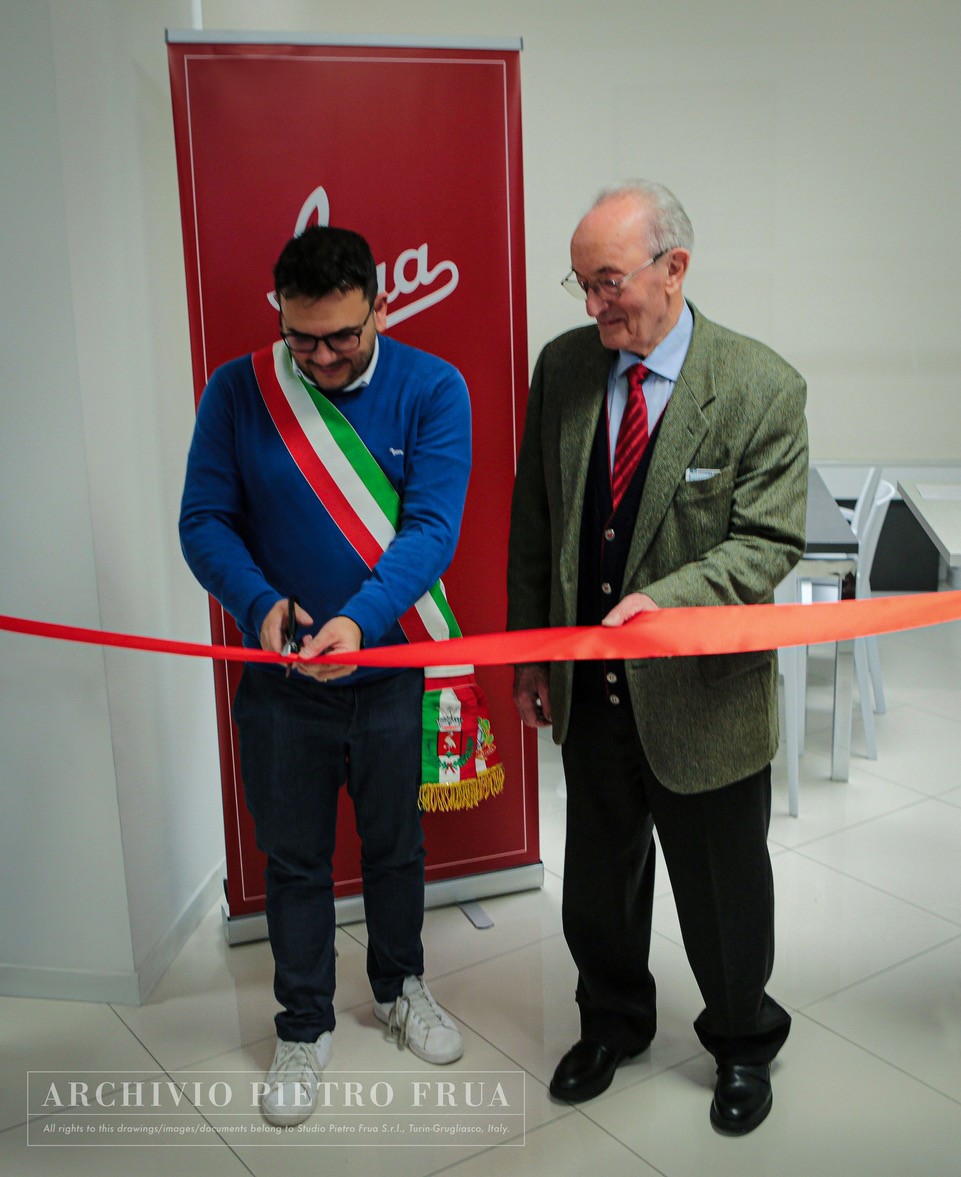As the first wave of female Palestinian prisoners were released from Israeli detention, a collective sigh of relief rippled through their communities. Despite the psychological warfare and calculated delays by Israeli authorities, thousands of Palestinians gathered late into the night to celebrate the long-awaited return of their loved ones. Yet, behind the cheers and reunions lay harrowing stories of abuse, suffering, and resilience, as revealed by the testimonies of these women.
Janine Amu: A Student Robbed of Freedom
Janine Amu, a university student from Hebron, was detained for 14 months without charges under the guise of “administrative detention.” She recounted being pulled from her home in the middle of the night, her family left in shock and uncertainty. “They didn’t tell me why,” she said, echoing the frustration of many detainees subjected to this practice.
Inside the prison, Janine experienced what she described as systematic humiliation. Guards dragged women by their hair, forced them to sit on cold floors for hours, and restricted access to basic necessities. She recalled moments of despair as she witnessed elderly prisoners crawling due to exhaustion and harsh treatment. Prisoners were frequently cursed at, berated, and told they were worthless. Even as she was released, her family was warned not to celebrate—a psychological tactic to stifle joy and instill fear. “We felt like even our happiness was being policed,” she said.
“I lost a year of my studies,” Janine lamented. “Now, I just want to return to my university and rebuild my life. But I will never forget the nightmare of that place.”
Rassan Rass: A Journalist Targeted for Truth
Another prisoner, Rassan Rass, a journalist from Bethlehem, was detained while caring for her newborn. Her crime? Posting against the ongoing violence and destruction in Gaza. “They imprisoned me for speaking out,” she explained, her voice tinged with defiance.
Rassan described the agony of separation from her child, who was reliant on her mother for care during her imprisonment. She also recounted the psychological toll of knowing her child was growing up without her. “Every night, I thought about what I was missing,” she said. Guards would mock her, saying she would never see her child again. Upon her release, she was reunited with her young child, a poignant reminder of the personal costs of her profession.
“I felt torn every single day,” she said. “But they could not silence me. The truth will always find its way out.”
Dan Hanachi: Enduring Brutality
Dan Hanachi, another detainee, detailed a regime of relentless punishment. Inmates were reprimanded for minor infractions, denied access to toilets, and subjected to dehumanizing strip searches. She hesitated to recount these humiliations but eventually revealed, “They used to pull us by the hair during searches, even when there was no need. It was meant to degrade us.”
Dan described how some prisoners were denied food for hours or made to crawl if they were too weak to walk. “We were stripped of our humanity,” she said. “Even the smallest freedoms, like using the bathroom, became privileges they could take away.” She shared the cramped prison cells with a mother and daughter from Gaza, both subjected to the same inhumane conditions. The mother, who was imprisoned with her teenage daughter, often worried about the long-term impact of their ordeal.
The trauma lingered even after their release, with guards warning, “You’re not leaving in victory; you’re leaving in defeat.” Dan recounted the emotional and physical toll of these words. “Even in our last moments there, they wanted to break our spirits,” she said.
A System of Suppression
The practice of administrative detention—imprisoning individuals without charge or trial—has long been criticized by human rights organizations. These accounts illuminate the systemic nature of the abuse. Prisoners were denied access to legal representation, cut off from the outside world, and subjected to psychological and physical torment. Many women described being strip-searched unnecessarily, a practice they labeled as state-sponsored sexual humiliation.
“They wanted to strip us of every shred of dignity,” said one detainee. Guards routinely used intimidation tactics, including threatening to harm their families if they refused to comply with arbitrary rules. For many, the lack of communication with loved ones was one of the most unbearable aspects of their imprisonment.
“They wanted to break us,” said Rassan. “But we refused to give them that satisfaction.”
The stories of these women, though deeply personal, represent a broader struggle faced by Palestinians under occupation. For every Janine, Rassan, or Dan, countless others remain in detention, their voices silenced and their fates uncertain.
Resilience Amid Ruins
Despite the harrowing experiences, the resilience of these women and their communities shines through. Their testimonies serve as a testament to the indomitable spirit of a people who refuse to be broken. Families gathered to celebrate the returns, waving Palestinian flags and chanting songs of resistance late into the night.
Footage from the West Bank showed crowds cheering as cars carrying the released prisoners arrived, even as Israeli forces delayed their transfer and moved them from one location to another in the dead of night. One prisoner described the moment she saw the crowd waiting for her: “It was overwhelming. It reminded me that we are never alone in this struggle.”
Their stories underscore the urgent need for international attention and accountability. Organizations worldwide have called for Israel to cease its use of administrative detention and to adhere to international human rights standards.
The release of these prisoners is a fleeting moment of relief in a protracted struggle. Their stories, however, remain an indelible record of the ongoing injustice and a call to action for those who value human rights and dignity. As Janine said, “We were imprisoned, but our spirits remained free. They can never take that away.”




